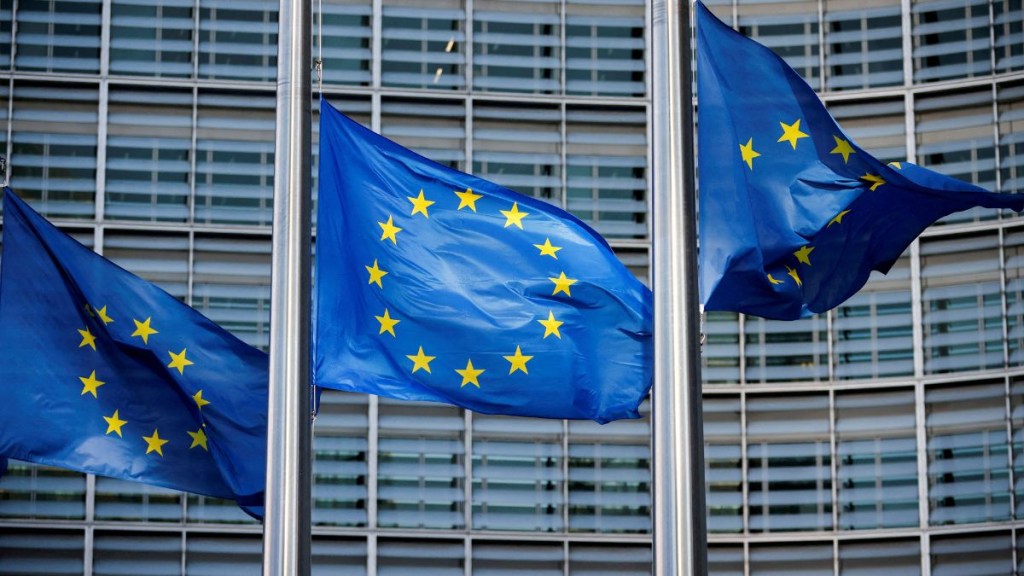By Rahul Pandey
The 10th European Union parliamentary election was held between June 6th and 9th, 2024. This was the first election since Britain exited the Union, and the results were surprising and dramatic. The crisis following the election led to the sudden dissolution of the French Parliament (the National Assembly) and a call for a snap election due to the massive loss of President Macron’s party (Renaissance) to the far-right political movement led by Marine Le Pen’s party, National Rally. Similar results occurred in Germany, where the far-right group Alternative for Germany (AfD, Alternative für Deutschland) won the highest vote share, causing the incumbent to lose their mandate in the Union election. The European Parliament has 720 members (MEPs) elected every five years. A European Parliament spokesperson announced that voter turnout was initially estimated at 51%, but this figure might change as some EU member states have not yet been included. The voter turnout for the 2019 European Parliament elections was 50.66%. However, the overall trends are clear for the future of the European Union.
The Changing Face of Politics in Europe
In France, results showed the far-right National Rally (RN) party winning 31.5% of the vote, more than double the share of Renaissance, which took second place with 15.2%, just ahead of the Socialists in third with 14.3%. RN leader Jordan Bardella called on Macron to dissolve the French parliament, describing the result as a “stinging disavowal” for the president. By accepting the moral defeat in the election, President Macron dissolved the National Assembly and called for an election, probably in the next month.
In Finland, Prime Minister Petteri Orpo’s conservative National Coalition Party is projected to win 24.4% of the vote. The Left coalition is expected to come in second with 17.4%, showing the most significant increase of any party, gaining 10.5 percentage points compared to the 2019 EU elections. The Social Democrats placed third, followed by the Center Party in fourth. The right-wing populist Finns Party is on track to finish in sixth place, behind the Greens. Finland will elect 15 lawmakers to the following European Parliament, up from 13 in 2019. Spain’s centre-right People’s Party (PP) emerged as the winner in Sunday’s European election, securing 22 out of the 61 seats allocated to the country.
In Italy, exit polls showed the ruling party, far-right Brothers of Italy, led by Prime Minister Giorgia Meloni, winning the most votes, with 26-30%. The centre-left Democratic Party (PD) came second with 21-25%, and the 5-Star Movement won 10-14%. The conservative Forza Italia party was projected to win 8.5-10%, and the far-right League could win 8-10%. Meloni governs in coalition with Forza Italia and the League.
In Austria, preliminary results showed the far-right Freedom Party (FPÖ) narrowly winning first place with 25.5% of the vote, edging out the conservative Austrian People’s Party (ÖVP) with 24.7% and the Social Democratic Party of Austria (SPÖ) with 23.3%. This marks the first time the FPÖ has won an Austria-wide election. In Hungary, Prime Minister Viktor Orban’s nationalist Fidesz party won the most votes but saw its weakest performance in years, garnering 43%, down from 52% in the 2019 EU elections. Opposition newcomer Peter Magyar’s centre-right party, Respect and Freedom (TISZA), captured 31% of the vote with 55% of ballots counted. Across the Nordics, left-wing and green parties made gains, while far-right parties saw a decline in support. In Sweden, the Social Democrats became the largest party with 25% of the vote. The anti-immigration Sweden Democrats aimed to outdo Prime Minister Ulf Kristersson’s conservative Moderate Party for second place but saw a historic drop to 13.2%, falling behind both the Moderate Party and the Green Party. In Denmark, the Socialist People’s Party emerged as the largest party with 17.4% of the vote, while the ruling Social Democrats dropped to 15.6%. In Finland, the socialist Left Alliance received 17.3% of the vote.
Implications of the Outcome
A more divided parliament may struggle to pass EU laws on climate, immigration, industry, and defence. Analysts suggest conflicts within right-wing parties could limit their influence. Centrist parties historically dominate, often forming coalitions to secure a majority. While the EPP is expected to lead, it may require ECR support for specific laws. Immigration remains contentious, with disagreements between northern and southern countries. Economic challenges pose hurdles to climate policies, endangering the “Green Deal.” Support for Ukraine is uncertain due to ties with Russia. Debates on European defence funding raise concerns about far-right and far-left relations with Russia and China. The EU’s industrial strategy may pivot to tech and green industries, possibly taking a tougher stance on Chinese imports.
Additionally, broader right-wing shifts in European countries and left-wing gains in the Nordic region highlight ideological divisions. Post-COVID challenges like inflation and immigration exacerbate polarisation, impacting international politics, especially concerning NATO, the Ukraine conflict, and Israel-Palestine issues. This polarisation risks conflicting global policies, particularly on climate, migration, and immigration.
In conclusion, the 10th European Union parliamentary elections have significantly reshaped the political landscape across Europe, highlighting a stark ideological divide. The rise of far-right parties in countries like France, Germany, and Italy, contrasted with gains by left-wing and green parties in the Nordics, underscores a growing polarization driven by economic challenges, immigration issues, and cultural shifts. This polarization affects national politics and has far-reaching implications for international relations and policy-making, including NATO, the Ukraine conflict, and climate change. As Europe grapples with these changes, the need for cohesive and inclusive strategies becomes ever more critical to address the diverse concerns of its citizens and maintain stability within the Union.
Author is PhD Candidate, China Scholar at the Centre for East Asian Studies (China Division), School of International Studies
Jawaharlal Nehru University.
Disclaimer: Views expressed are personal and do not reflect the official position or policy of Financial Express Online. Reproducing this content without permission is prohibited.
